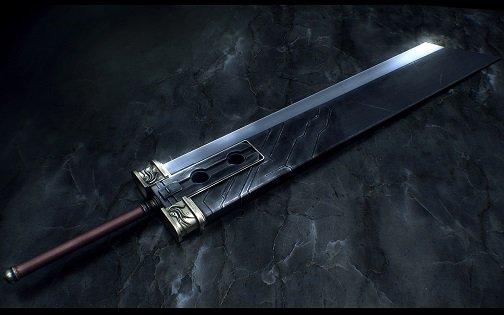
As unreal as it may seem (to myself included) some gamers are willing to spend thousands of dollars on digital assets. These asset could be anything from a sword in a role-playing game to an extra life on Candy Crush. The MOBA genre spun off an entirely new business model and created skins.
Before Multiplayer Online Battle Arenas most games that were free-to-play were also pay-to-win. All free-to-play games would eventually create a wall so that players would have to end up paying if they wanted to progress. The money spent would actually change gameplay and make it easier for users willing to pay. Thus: pay-to-win.
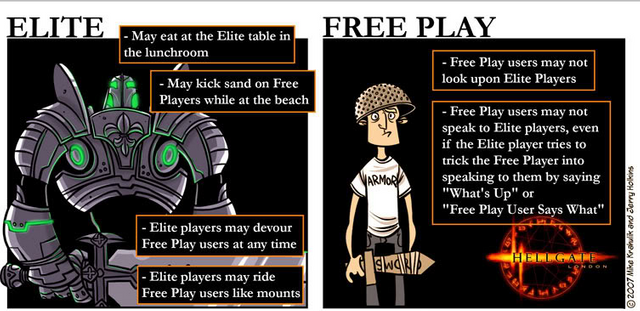
This business model did not sit well with many gamers. What was the point of playing a competitive game if someone could just spend hundreds of dollars to win? Competitive gamers would rather pay the $60 for the game once to ensure that everyone is on an even playing field. In response, the digital vanity economy was formed.
Instead of paying for a competitive advantage, now some of the most popular games allow gamers to pay simply to change the way their character and character abilities look on-screen. Players are paying to change the graphics. Why pick "Ziggs" when you can pick "Pool Party Ziggs" (only $10).
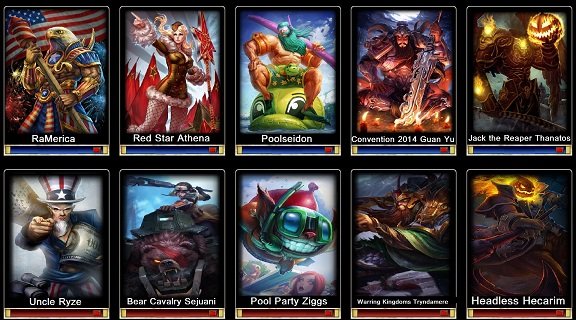
This business model is tried, true, and surprisingly profitable. By allowing anyone to play for free a gigantic userbase is acquired. The diehard vanity gamers spend hundreds (if not thousands) of dollars decking out their characters with these artificially scarce digital assets simply for bragging rights or because it looks cool or because they want to support the company or all of the above.
All of this value is created by artificial scarcity. It would cost Riot Games zero cents to allow their users access to every skin in the game. They choose not to because the value of skins is purely 100% determined by how much they decide to charge for it and how much demand they have.
Therefore, we can see that artificial scarcity isn't actually bad at all. If artificial scarcity didn't exist none of these digital assets would have any value (including Bitcoin!). It's the people in charge of the artificial scarcity that corrupt it.
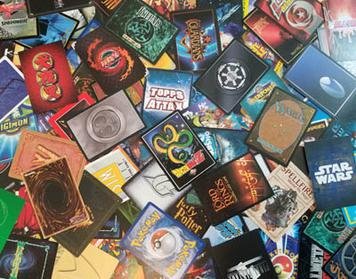
CCGs
Collectible Card Games are the worst offense of artificial scarcity. From my point of view, it's almost amazing that they're even allowed to exist. It's almost like creating your own little central bank. Except, instead of being able to purchase things with this paper product, one is able to play a game with them.
I've played a lot of Magic the Gathering and Hearthstone in the past. Fun games. The problem with them is that they all inevitably end up becoming corrupted by greed. New expansion packs are constantly coming out that give incentive to players who want to win to continue to buy more cards. CCGs are the ultimate pay-to-win game.
On top of that, a false sense of ownership trickles down to the players. Cards are speculated on like we speculate with cryptocurrency. However, unlike crypto, ownership always lies with the central authority. If they want to print out rare cards, flood the market and economy, and sell out, that is well within their rights.
In the case of RPG games, say you find a super rare sword that's worth $1000 on the open market, so you sell it (duh!)... Nothing stops the game company from sniping you, deleting the item, and terminating your account for "breach of EULA contract". This can and does happen all the time, and it's a constant reminder that we actually don't own any of this digital content even though it seems like we do most of the time. Cryptocurrency is on the verge of transferring this ownership back to the player where it belongs.
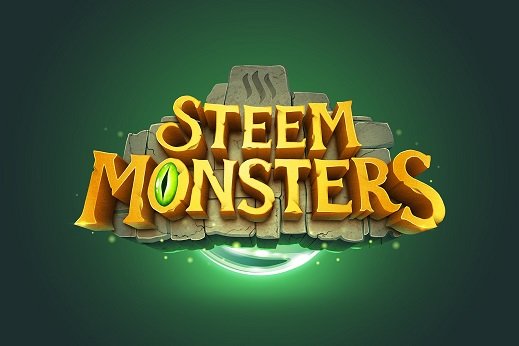
It might surprise you to find out that I have never really looked into Steem Monsters. I think games are going to be a big part of Steem's future. I like CCG games especially when they are new and uncorrupted. Why am I not giving Steem's seemingly only game a chance?
So far what I see is a project that doesn't need a blockchain to exist. The players don't own the game. I checked the website for the first time just now. Packs are bought on a website and priced in USD.
Where is the code? If it's not open source I want nothing to do with it. I want a game that's owned and operated by the community that plays it.
I'm really not trying to bash the project. I appreciate the work being done and hope for the best. I'm simply not sensing anything new on a foundational level. I'm not sensing the kind of decentralization that will make the world turn its head and look at us with amazement because we created something that has never existed before.
You might be thinking this is an unreasonable expectation: to create something that's never existed, but I disagree. Crypto has never existed. The ability to decentralize ownership has never existed. Therefore, going forward for the next decade or so, it's going to be quite easy to create products owned by the people that could have never been developed otherwise.

My vision for a blockchain CCG would be one where the money for packs gets sent directly to @null. In fact, this is my vision for many of the digital assets that I hope to see on Steem, and it is the basis of Vaporchains. When someone asks why the asset is decentralized anyone can point to the fact that Steem/SBD was burned in order for this asset to be created. This automatically gives it scarcity and promotes decentralization by increasing the value of the Steem blockchain itself.
Now that the money has been sent to @null, how do the cards get created? Luckily, the foundation of POW is that hashing algorithms are random. A random hash from a trusted source (witness, POW coin, or otherwise) can easily seed the random number generation of a booster pack that got purchased.
From here clients should be able to connect directly to other clients and play the game without any kind of central intermediary. I expect there would be ladders and tournaments with prizes and whatever else the devs care to add.
And so, my point here is that once the game is up and running, it shouldn't even really be obvious who the dev team is, and multiple teams and possible forks should be encouraged, just like crypto operates.

Drawbacks
Obviously the first question anyone is going to ask is, "If we do things this way how will development be funded in the first place?" From my point of view, whales should be clamoring to fund projects like this because their stake would moon. That isn't happening yet so, just like free-to-play games had to do some clever maneuvering, so do the dev teams when it comes to inventing new business models that literally couldn't exist before blockchain technology existed.
Variable priced packs
If packs were priced based on the popularity of the game, the dev team could pre-mine their own cards as an investment in their own product. Funding development would be as easy as selling the cards back onto the market when the money is needed.
Of course you'd need some kind of metric to gauge "popularity" of the game. What could that be? Total packs bought? You could say a pack costs 0.0 Steem to start, but after 1000 packs bought the price increases by 0.1 Steem. This way, the dev team could buy the first 10,000 packs and bump the price of packs up to 1.0 Steem.
Such a process would cost less than 5000 Steem and shows a solid commitment of the dev team to deliver a product that's owned by the community and is going to raise the value of everyone's stake.

Internal market (universal price index)
Another way to measure value would be to create a market on the blockchain where anyone can buy and sell cards with each other. Using this market a universal price index for a card could be created. Let's say this index is an average of the total market cap, so if there were 100,000 cards on the market and you could sell them all at market value for $10,000 the universal price index would be $0.10 because that's the average value per card.
We could then use this index as the metric for how much it cost to buy a pack by sending crypto to @null. The logistics of such a system are questionable, seems like a mechanic like that could have a lot of issues, but I'm just spitballing here.
Timed Auctions?
Another way to release cards onto the blockchain would be with an auction lottery. Say the project auctioned off 10 packs every hour. Everyone who bids on these ten packs would have an even chance of winning based on the amount of Steem burned on the bid. This would be another easy way for the dev team to premine their own product.
Arbitrage
This is another way the dev team could make money. If you look at Hearthstone mechanics there is a way to "disenchant" cards into "dust". You can then use the dust to create any card you like. The dev team would easily be able to utilize a mechanic like this because many of the cards they premined were dirt cheap. Instead of flooding the market with massive supply they could pick and choose super rare cards that had very high demand. Again, it would be easy to undercut market value because the premine was inexpensive. As cards from the premine dwindle the game becomes more and more legitimately owned by the community. This kind of ownership is totally unique in the gaming community and should have the effect of making this CCG very valuable.
Bankruptcy
What does the dev team do if they run out of premined cards to sell? Just make an expansion pack and premine that as well.
Tournaments
In a decentralized environment, anyone should be able to start up a tournament. Perhaps there would even be a burn requirement here as well. However, who better to host a tournament than the dev team itself to raise money for production? As long as the prize pool is less than the buy-in money flows into the tourny host's pocket.

Second layer scaling solutions
It becomes obvious that all this activity on the Steem blockchain will tax the witnesses and make RC costs skyrocket. Imagine millions of people here everyday trying to transact on a system that only allows 65KB of information every 3 seconds.
Luckily, competitive multiplayer games like this will allow entire matches to be played off-chain. Imagine your client signs every one of your moves with your private key. Now your moves can not be falsified. The same is true for your opponent. Therefore, the only time a gamer would need to post to the blockchain is to update who won instead of every move made. If anyone tries to cheat there is hard evidence that proves it. No one will cheat because they can't get away with it and a penalty can be imposed if the community sees fit.
This is exactly how the Lightning Network operates, except instead of a game being played it simply transfers Bitcoin back and forth off-chain to be updated at a later time. Plasma will be Ethereum's version of this. Second-layer scaling solutions are going to be an extremely powerful boon for the entire cryptosphere.

Proof-of-brain digital items
Burning crypto is just one way to provide evidence that a digital item has value. However, there will be other ways as well. For example, what if you solved a CAPTCHA puzzle that this community valued? In essence, we can create value "out of thin air" because devs are lowering the bar of entry and creating a generic way that anyone can contribute to the development here.
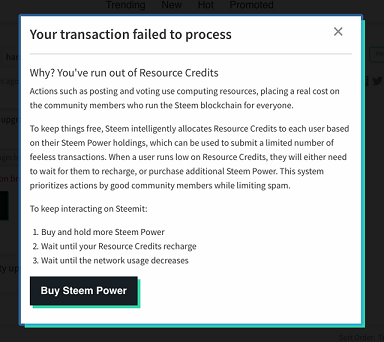
RC > Steem
I've said it before and I'll say it again, one day soon™, the value of resource credits is going to be greater than the 10% of inflation we're being charged to acquire it. The blockchain offers a commodity of trust, and when the dapps here offer full ownership of digital assets in high demand, that trust is going to be worth more than the cost of funding the witnesses. What happens then? The price of Steem moons in order to keep up with the demand to transact on the blockchain. The network effect is strong in the cryptoshpere.
Yeah... SM would be great if only they spent 10 minutes and posted the code to Github. I’m hoping to enable provably scarce assets on Steem with Engine. Before then I was actually working on an open-source SM-like game on Steem but realized that developing a framework to create games and dapps on Steem would be much more valuable. @chibera is going to integrate provably scarce digital assets to their game.
About funding models, Engine development will be funded in a fully decentralized way, taking token votes on which accounts inflation of the ENGN token will go to to fund development. What do you think of the model?
Downvoting a post can decrease pending rewards and make it less visible. Common reasons:
Submit
Sounds interesting but I'd like to hear more details.
Downvoting a post can decrease pending rewards and make it less visible. Common reasons:
Submit
So everyone will be able to vote on 11 users to become 'granters'; this works similar to the Steem witness vote but it is done with ENGN tokens. The top 11 users then split daily inflation of the ENGN token -- which they then presumably use to either a) fund their own development on Engine, using Engine, etc. or b) fund others' development on Engine, using Engine, etc., likely a combination of both.
That way, the network can be easily kickstarted without an ICO -- there will be a tiny giveaway of ENGN tokens at the beginning for who gets the first few ENGN (anyone can receive these, they just have to be precise with their timing; I'll be definitely getting some). Then these owners of the first ENGN vote on granters who then start receiving the newly minted ENGN. Right now I'm not sure how the ENGN inflation curve will work; I'm thinking of doing some sort of tweaked logarithmic or something... Any ideas on how to make a good curve (some sort of formula for at day X how many ENGN Y are distributed to granters...).
Downvoting a post can decrease pending rewards and make it less visible. Common reasons:
Submit
Another great article man. It seems like embracing open source and decentralized solutions as a society is a huge step in our evolution. It’s kind of like being a good parent, creating something with love and then relinquishing control and sending it out to become what it will and live its own life. Hah.
And hoping it doesn’t grow up to be an axemurderer.
Downvoting a post can decrease pending rewards and make it less visible. Common reasons:
Submit
Yeah, I think we can all learn a lesson from @dan. It's not always going to go in the direction you wanted or planned. I wonder how Satoshi Nakamoto feels.
Downvoting a post can decrease pending rewards and make it less visible. Common reasons:
Submit
Steem monsters is eh, I’ve played it a bit and it’s nothing special. Just another card game that makes a bunch of money off people thinking it’s great. Akin to magic.
I played a game, Taichi Panda, and the top player spent well over 100,000$ by the time I quit. He was middle eastern and had lots of money to burn and was evident as he was always a hundred times stronger than anyone else so it wasn’t bs.
Have you looked at @chibera? It seems like a cool game based off Steem here but is unfortunately not open source that I can see. I do appreciate the open source concept but unsure how big games can develop like that.
Posted using Partiko iOS
Downvoting a post can decrease pending rewards and make it less visible. Common reasons:
Submit
The thing about Steem Monsters is that anyone can come along and, using the tactics that I've mentioned, steal the project right out from under them. What legal course of action would the SM team have? This could be done completely anonymously and possibly even in a legal way. All projects that can decentralize will decentralize. The Race To The Bottom ensures it.
Downvoting a post can decrease pending rewards and make it less visible. Common reasons:
Submit
Nice article. I have been thinking along these lines. Why do you think it is necessary to burn STEEM to give value to assets? Have you heard about bonding curves? It allows the funding of development in much the same way an ICO would, but affording more protections to the investors.
Downvoting a post can decrease pending rewards and make it less visible. Common reasons:
Submit
I think that burning coins is a solid way to do it, but I think there will be other ways as well. You basically have to prove that the asset can't be farmed by bots, or if it can it has heavy resistance. A token burn guarantees that bots can't farm the asset.
However, there are many assets (like World of Warcraft gold) that still have value even though bots are constantly plundering the economy. We only need "good enough" solutions, just like Bitcoin did for the byzantine generals problem.
Downvoting a post can decrease pending rewards and make it less visible. Common reasons:
Submit
Good point. I didn't think of that. But don't you think that the recent (HF20) restrictions on RC for new accounts would prevent spam, just like they did for the main chain?
Downvoting a post can decrease pending rewards and make it less visible. Common reasons:
Submit
Thank you for this profound article with many valid points in it! I personally think, that the future of blockchain gaming will be in reward sharing and dividends, where people get a share of the revenue of the game through a system of tokenization. We are already seeing the first steps into this direction in gambling, but also in casual gaming. You keep your tokens as shares in the game and are a part in its long-term success. Think of getting a share in the success of Fortnite with every purchase and game you play. This means long-term loyal customers. This is going to be huge. This is where entertainment blockchains like Tron are heading and where my personal investment goes too. It will take some time until games like Fortnite or Hearthstone will be released on Tron, but it maybe will go faster than we think. In the meantime I enjoy little games like Fishing Master http://bit.ly/trxfish - where I earn substantial amounts every day and build my stack in TRX. The bigger games will follow soon...
Downvoting a post can decrease pending rewards and make it less visible. Common reasons:
Submit
I really want to believe in Tron but I don't understand the business model and Justin Sun is a dumpster fire. There is no inflation... when the foundation runs out of coins are they going to hard fork? I don't get it. Super representatives make little sense to me... and finding information online has proven very difficult... I guess I'll just have to read the whitepaper. I hope they made a new one that isn't copied from Ethereum.
Downvoting a post can decrease pending rewards and make it less visible. Common reasons:
Submit
Inflation is not a problem, because there are tokens for specific purposes. Bittorrent for example will issue its own BTT and reward seeders with it - TRX is just the base currency. Much like SMTs should have been on Steem, but they are already a reality.
I see Tron as an Entertainment network with lots of dApps running on it. I'm sure the copied a lot from Ether, but obviously are outperforming them in every matter (transactions, speed - quality and quantity) only a few months after the mainnet launch.
I play Blockchain Cuties on Tron and there are people playing it on ETH and they are used to wait for hours for their transactions in game and pay high Gas fees. I wonder, how someone has this patience to play a game on ETH.
SRs make total sense as elected representatives - much like politicians - who vote for changes on the network. That's basically how democracy works.
I don't think that reading whitepapers will really convince you - just spend a few days on Tron and see all the possibilities for yourself.
Downvoting a post can decrease pending rewards and make it less visible. Common reasons:
Submit
Congratulations! This post has been upvoted from the communal account, @minnowsupport, by Edicted from the Minnow Support Project. It's a witness project run by aggroed, ausbitbank, teamsteem, someguy123, neoxian, followbtcnews, and netuoso. The goal is to help Steemit grow by supporting Minnows. Please find us at the Peace, Abundance, and Liberty Network (PALnet) Discord Channel. It's a completely public and open space to all members of the Steemit community who voluntarily choose to be there.
If you would like to delegate to the Minnow Support Project you can do so by clicking on the following links: 50SP, 100SP, 250SP, 500SP, 1000SP, 5000SP.
Be sure to leave at least 50SP undelegated on your account.
Downvoting a post can decrease pending rewards and make it less visible. Common reasons:
Submit
Genialer Artikel!! ;)
Posted using Partiko Android
Downvoting a post can decrease pending rewards and make it less visible. Common reasons:
Submit
This is a lot more benefitial to steemians who hold a lot of SP than to the devs himself. I could make a game like this, but it would make everything worse for me. Less people holding Steem Power means further centralization towards the hands of a few, making it even harder for me to grown on steemit than if I used a more traditional business model.
Downvoting a post can decrease pending rewards and make it less visible. Common reasons:
Submit